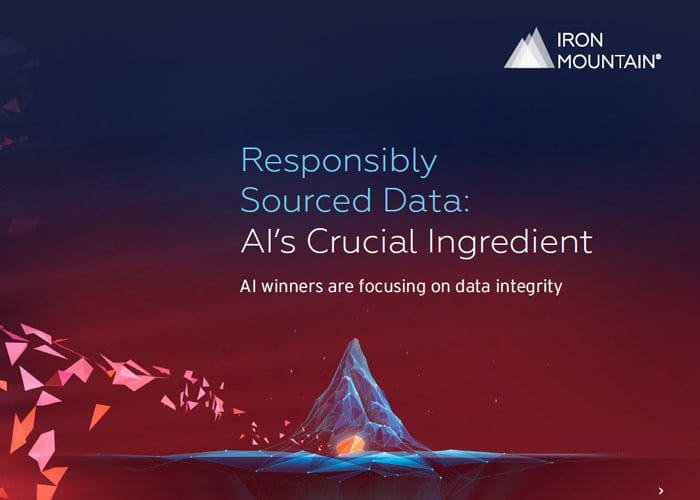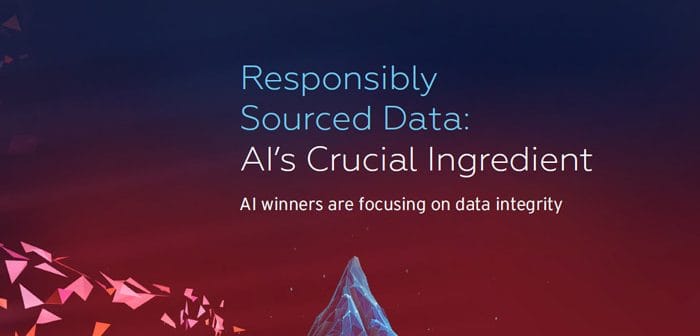
New research from Iron Mountain, in partnership with FT Longitude, finds that nine out of 10 organisations globally have seen revenues and profitability grow over the last 12 months because they invested in their information management systems and strategies.
The survey of senior leaders at 500 large organisations worldwide highlights AI-readiness as critical to organisational ambitions in the next 12 months, with responsibly-sourced data key to delivering this goal.
Managing data responsibly and effectively for the AI age can give organisations a strong competitive advantage. However, many are failing to harness this successfully despite AI-readiness being a key strategic priority.
Eighty four per cent of Australian respondents reported revenue and profitability growth over the past 12 months as a direct result of their organisation’s information management practices, including data collection, storage and analytics capabilities.
This ‘good data dividend’ equated to a total global revenue gain of AUD115 trillion, or average revenue growth of AUD3.4 billion per organisation.
Iron Mountain’s research also found that, on average, an organisation had lost approximately AUD493,000 over the past 12 months because of data integrity flaws, equating to an AUD22 billion loss globally.
Half of Australian organisations say improving data insight extraction will be key to achieving their strategic ambitions over the next 12 months – making it the most cited focus area in the country. This is 37% higher than the global average and surpasses countries such as the United Kingdom (44%) and the United States (39%).
Over a third of respondents (36%) identified AI-ready data as the information management focus area that will have the greatest impact on achieving their organisation’s strategic ambitions over the next 12 months.
Almost half of surveyed organisations in Australia identify loss of competitive advantage as the main consequence of data integrity flaws (48%). This is significantly higher than the global average of 29% and the highest among markets surveyed.
However, workforce AI literacy remains an important concern, with 42% citing this as one of the top challenges set to impact their AI readiness over the next one to three years. This is significantly higher than the global average of 28%.

Nearly all (92%) Australian organisations say their AI readiness strategies have benefited their companies to date – 14 percentage points above the global average. However, while 34% of Australian organisations consider their AI readiness activities to be a crucial part of their competitive advantage, 58% say that, while their AI initiatives provide occasional benefits, they lack consistency.
Iron Mountain’s research showed that over the last 12 months, the organisations surveyed achieved an average of AUD3.4 billion in revenue growth because of improvements from new information management systems and strategies.
A small group of global leaders who are experiencing the most revenue and profitability increases have more data integrity and accuracy provisions in their workflows to ensure the data used in AI outputs are sourced responsibly:
- One hundred per cent have processes for eliminating redundant, obsolete or trivial data and for automating data extraction.
- Ninety-six per cent are using AI dashboards to explain outcomes and data lineage to non-technical stakeholders.
- These leading organisations are 16% more likely to have adopted AI nutrition labels to verify data quality, and 55% of them are looking to AI technologies themselves to improve their unstructured data sources so they are more AI-ready.
“Smart information management is key to capitalising on the growing AI opportunity, and Iron Mountain’s research shows that a commitment to responsibly sourcing the data for AI models is a hallmark of leading organisations,” said Iron Mountain’s Mithu Bhargava. “With AI fast becoming a necessity, this data quality-first mindset is now essential for every organisation.”
You can read the full report here.





